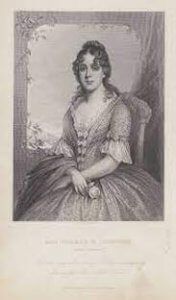 Robert L. Pyles, MD | Potomac Tea Party
Robert L. Pyles, MD | Potomac Tea Party
In the efforts of the Progressive Left to destroy the legacy and monumental contributions of Thomas Jefferson, a centerpiece has been the focus on his presumed relationship with Sally Hemings, a slave at Monticello.
The charge goes that Jefferson had a long-term relationship with Sally Hemings, and had six children with her. In spite of the fact that there is very little evidence to support this rather dubious hypothesis, the tours at Monticello and the University of Virginia state this as a fact. As it turns out, this is probably not at all true.
One of the problems with the fact that the Progressive Left has taken over the tours here, as at many other historic sites, is that instead of celebrating the phenomenal achievements of the Founding Fathers, every detail, no matter how inconsequential, is often twisted into negative criticism and character assassination.
It does seem as though the Progressive Left is willing to go to any length in order to attack Jefferson’s character. For example, recently a modern bathroom was torn out at Monticello and revealed a small room behind, that had not been previously known. This was immediately interpreted by the Left as a secret bedroom for Sally Hemings to be able to carry on her liaison with Thomas Jefferson, although there was not a single vestige of objective evidence to suggest that this was so. Cooler heads prevailed, however, and it was eventually understood to be simply another slave room.
The one piece of objective evidence is as follows: in 1998, the Thomas Jefferson Foundation ran a DNA study and found that there was a match between the Jeffersonian DNA and that of the line of Sally Hemings. They concluded that Thomas Jefferson was likely the father of her six children.
However, the Thomas Jefferson Heritage Society stated almost immediately that “they had skepticism to the convictions of this untruth.”
Next was a 1998 article in “Nature”, citing the DNA evidence. However, there was a retraction by the same magazine two months later. “The title of our study was misleading in that it represented only the simplest explanation of our molecular findings”, as they put it.
Then, “DNA testing by the Thomas Jefferson Society in 1999 suggested that TJ’s younger brother Randolph, rather than Thomas, was the most likely father of Sally Hemings’ sons.” There was considerable evidence that Randolph had been having relations with some of the female slaves.
In 2001 and again in 2011, the Thomas Jefferson Heritage Society also reached different conclusions from the 1998 article. Based on contemporary witnesses, they concluded for one thing, that Hemings was a “minor figure” to Thomas Jefferson, and it was very unlikely that he had fathered any of her children. They suggested that, in, fact it was much more likely his younger brother, Randolph, who was the father of at least some of her children.
Herbert Barder, a Jeffersonian scholar, after exhaustive research, concluded that Jefferson was “NOT the father of Easton Hemings or any other of Hemings’ children. The DNA study along with historical information indicates that Randolph is possibly the father of Easton and maybe the others.”
Pulitzer Prize Historian James Truslow Adams wrote- “Almost every scandalous story about Jefferson—can be trusted to be lies.”
Professor Andrew Holochak also agreed that evidence supports the conclusion that Randolph is most likely the father. Three of the Hemings’ children were given names from Randolph’s family. Randolph, as it turns out, was a notorious alcoholic.
Danielle Darling, a former Monticello slave, Isaac Jefferson, recalled in 1947 that Randolph Jefferson “used to come out among Black people and dance half the night.” By contrast, there are no reports that Jefferson had any social interaction with the slaves, either at Monticello, or elsewhere.
Paris
Another “proof” put forth by the Progressive Left is that, during the five years Jefferson served as Ambassador to France, he had Sally Hemings come with him to Paris, as his mistress.
Here is the reality. Jefferson’s wife had died several years before. She died, tragically, in childbirth. Before she died, she asked him to promise that he would never remarry, a promise that he kept, as he seemed to do with all his promises. By all contemporary accounts, Jefferson was “devastated” by her death.
Jefferson wanted his two daughters, aged 12 and 9, to accompany him to Paris. Accordingly, he asked 14 year old Sally Hemings to come along as a companion for his children. Jefferson also asked Hemings’ 19 year old brother to come also, to be trained in French cooking, at which he apparently became very adept.
In Paris, Jefferson was engaged in a constant round of very public social and political engagements. Yet it is a remarkable fact that there was not a single credible contemporary report of an intimate relationship with Sally Hemings. Contrast that with Benjamin Franklin, whose dalliances seemed to be the stuff of legend and were highly publicized. Given the nature of French society at that time, any hint of any such relationships by Jefferson, including with Sally Hemings, would have been also highly publicized.
Once again, however, it is almost impossible to imagine that Thomas Jefferson could have carried on a long-term relationship with Sally Hemings and had numerous children by her, without a single contemporary testimony from anyone either at Monticello, in Paris, or anywhere else that such was the case.
One contemporaneous report was from an extremely disreputable newsman by the name of James T. Callendar. He blamed Jefferson for some of his own failures, and in retaliation, published a series of newspaper articles accusing Jefferson of having children with Sally Hemings. He began those attacks in 1805, when Jefferson was president. He also published scurrilous attacks on Washington and Hamilton. He was a severe alcoholic, and drowned in a drunken stupor. Jefferson chose not to reply, and the reports did not seem to affect Jefferson’s reputation. However, this was the start of the “Sally Hemings” rumors, which have never entirely faded away.
Another dubious exception was a son of Sally Hemings, named Madison Hemings. He wrote in his “Recollections” (Pike County Republican, March 13, 1873), that his mother, Sally, had had a long term relationship with Jefferson, and bore a number of children with him, including Madison. Unfortunately, there seem to be a number of holes in Madison’s story. A large one is that he reported that Jefferson’s relationship with his mother began in Paris, and that Jefferson and Hemings stayed only eighteen months in Paris.
That would have meant that Jefferson would have started an affair with Hemings when she was fifteen or sixteen years of age. It also would also have meant that Jefferson would have begun this affair when he was deeply in love with another woman.
Madison also states that when Sally Hemings returned from Paris after eighteen months, she was pregnant, which certainly would have bolstered his story that Jefferson was his father. However, again, his story has major inconsistencies. For another matter, Jefferson was in Paris for five years, not eighteen months, as was Sally Hemings. Madison also states that the child was named “Tom”, and died after a year or two.
Once again, there is not a single independent confirmation that this presumed child ever existed, as there are for the other children of Hemings, but such a birth would certainly serve the purpose of bolstering Madison’s own claim that Thomas Jefferson was his father. The first known child of Sally Hemings was born six years after she returned from Paris.
However, the real “tell” is the “tone” of the way Madison talks about Jefferson. It is clear that he didn’t know Jefferson at all, and had no relationship with him. He speaks of Jefferson as a distant, remote figure. We have seen Jefferson as a loving, warm individual. Is it believable that he would have had nothing to do with a natural son of his own?
And finally, again, there is no testimony from contemporary witnesses, some of whom surely would have commented on Jefferson’s alternative family at Monticello. Most of all, and most tellingly, there is no testimony from Sally Hemings herself. Even more remarkably, as Madison Hemings tells his story, he includes no personal information about his mother’s purported relationship with Thomas Jefferson. He doesn’t even mention that his mother claimed such a relationship, nor that she ever talked to him about who his father was. Wouldn’t it be expected that Sally Hemings would have filled in her son on all these matters if there had been a relationship?
On that note, if Jefferson had been involved in such a long term relationship with Sally Hemings, and had six children by her, one would assume that he would have written her many affectionate letters and notes, and given her many personal gifts, as any man would do with the woman he loved. And further, isn’t it likely that Sally Hemings would have passed on many of those items to her children, as tokens of their father’s love, or if for no other reason, to validate their paternity.
Yet no such letters or gifts seem to exist. Without meaning to be melodramatic, there is instead, only a thunderous silence.
To return to Madison, how to explain such an astonishing gap in his story? And why did he wait until he was sixty-eight years old to make this claim public? One obvious and likely possibility is that claiming paternity with Thomas Jefferson would be of enormous potential benefit and prestige to Madison, versus being the offspring of Jefferson’s alcoholic younger brother. As cited above, Randolph would have had “means, motive, and opportunity”. It would also have been much easier to keep such a relationship quiet, as Randolph was not living in the house, nor was he such a prominent figure.
Among other credits, Dr. Pyles served as President of the American Psychoanalytic Association and was awarded the honor of “Distinguished Life Fellow” of the American Psychiatric Association.
Thomas Jefferson and Sally Hemings: The Left Spins Another Yarn to Trash the Founders
(Part 1) (Part 2) (Part 3) (Appendix I) (Appendix II)

